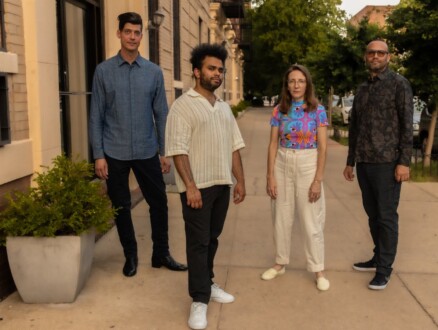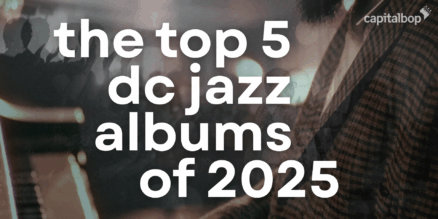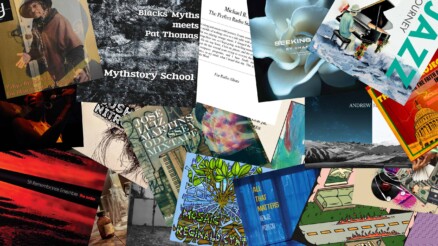Saying less: On Joshua Redman’s new quartet

It is hard not to begin a piece on saxophonist Joshua Redman without mentioning his emergence as a Young Lion in the early 1990s. Or without mentioning his father, Dewey Redman, and the elder Redman’s legendary body of work as a clear connection to jazz history. The discourse on the music is consumed with era and lineage, by both blood and concept.
For his part, Redman does not appear to be legacy-obsessed in any restrictive way. It is almost as if with every new departure, every turn to a newer project, the fewer the words, the more we gain from listening.
If we turned away from the ease with which we often shoehorn and pigeonhole artists into categories, we might appreciate the ways that Redman, despite an eclectic bag and penchant for experimental flourish, has always returned to one of the music’s iconic formats: the quartet. For the last three decades, this has been the basis for much of his compositional language. Different personnel have come and gone, and Redman’s sound has shifted alongside the interplay of these distinct (yet almost always acoustic) formations that apply an emotive, subtle, and groove-forward register to music that has had a great deal to “say” over the years.
With Redman’s latest recording for Blue Note, Words Fall Short, we are once again listening for what words cannot always describe. And we are once again listening to a quartet sound that for Redman feels like a homeplace. On Sunday, June 29, he brings his newest band to The Birchmere, where both longtime followers and perhaps some newer admirers can experience one of the music’s long-distance runners reimagining this core format as he continues to speak to the times.
Although bringing the same lineup from his 2024 hit at Blues Alley, Redman comes to The Birchmere fresh off the release of a new record, one in which this quartet was involved intimately. Consisting of pianist Paul Cornish, bassist Philip Norris, and drummer Nazir Ebo, this group, it turned out, was the perfect vehicle to express a set of compositions that Redman wrote in 2020. Coming together in a short time to support the tour for 2023’s where we are — a vocals-driven record that explores the question of place — the group moved about the world and through the music in ways that gave Redman the confidence that their journey together could be refracted through a studio album.
In Redman’s own words, the original compositions of Words Falls Short recognize the possibilities inherent in “human imperfection,” which is one way to contend with the emotional rollercoaster of having the world shut down while bearing witness to both human suffering and gross indifference. Yet, for all of the feelings that it recalled, there was no guarantee that one could recreate that context and ethos that drove the compositions of these tunes in the studio setting. In unanticipated ways, the Cornish-Norris-Ebo convergence gave Redman the quartet sound that he needed to finally let these songs come out.
In that sense, we might even say that the group’s triumphs on the road exceeded those of where we are as a record. On stage, the chemistry of Norris and Cornish with Redman and vocalist Gabrielle Cavassa’s rueful layering took on different dimensions. For Cornish, in particular, playing with Redman has offered listeners an extended look at the talented Houston-born pianist, which has translated into his own deal and forthcoming record with Blue Note later this summer. For their parts, Norris has drawn comparisons to Christian McBride (from Redman himself, a longtime McBride collaborator), and Ebo is one of the most in-demand young talents on the kit.
All of this is to say, that when playing together in performance settings, something special happened. Testing out the music that would eventually become Words Fall Short one night at soundcheck, Redman recalls that it was then that he knew.
The graceful tone of the record seems a perfect match with the acoustics of The Birchmere, a place renowned for musics other than jazz, though it is by no means a foreign product within its walls. Beginning with “A Message to Unsend,” a tune that begins elegiacally with Cornish and Redman playing duo before punctuating the message with Norris and Ebo, the album begins like a continuation of earlier moods found in records like Walking Shadows and James Farm.
But the next tune, featuring fellow saxophonist Melissa Aldana, quickly melts away that assumption. Much like the other guest spot on the album (“Icarus,” featuring trumpeter Skylar Tang), with “So It Goes,” Redman effectively takes wistfulness to a place where we can witness its movement and displacement. “So It Goes” and “Icarus” both possess an energy, perhaps even a reclamation of the energies, that might have felt lost amid the grief of COVID. Aldana and Redman are locked into a conversation that explodes. With Tang, Redman moves about the cycle of resolve with fierce determination. It is a march upward and out.
Other moments of the record showcase the explosive possibility from the quartet. Norris is at his finest in a solo introduction to the title track. The tune is blissful and bright, yet it crosses these paths not for the sake of nostalgia for lost tomorrows. Taking on the moment with soprano saxophone, Redman clarifies that words fall short because music is not simply a “mathematical” formula reducible to the formality of meaning. Like several of the tunes, this title is borrowed from literary figures who work across the form, while also recognizing the beauty of its limitations.
Improvisation here reaches for the substance of life that resists precision. But there is a cohesiveness in that reaching. And an openness that moves us toward something more inviting than a conservatism or positivistic need to contain all that music is. Cornish, who is also from a prominent musical family, adds to this brew in one of the best solo improvisations of the record on “Over The Jelly Green Sea,” an even slower tune where you can hear his gospel and soul roots if you listen closely. Here and throughout the record, the quartet artfully responds to Redman’s invocations of hope with expressions of potential.
This is music that lends itself to the beauty and power of being in physical space, written in a time where our desires for reunion were foremost. Now that we are back together in some ways, a group that Redman did not anticipate or even know would be this music’s vehicle has coalesced. Yet, with this tour, record and new quartet, what matters above all is that this sound is coming back to those spaces that grounded it. It is coming back to us.


